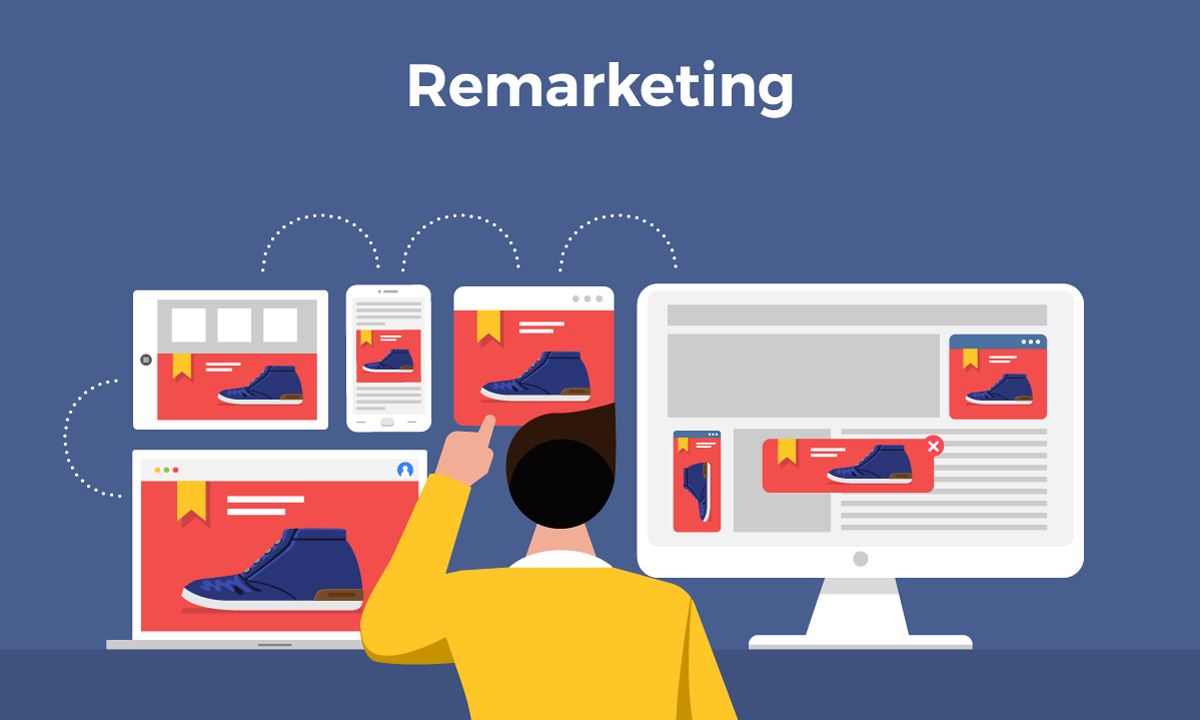Leverage Remarketing and Retargeting to Get the Most Out of Your Marketing Strategy
What is Remarketing?
Have you ever wondered why you're seeing advertisements for products you've looked at online, even after you've left the website? Or perhaps you received a timely email or postcard enticing you to replenish your favorite beverage with a handy coupon? These are both prime examples of remarketing.
Remarketing involves displaying actionable messaging or ads to individuals who have interacted with your brand in some way. This includes visiting your website, adding items to a shopping cart, making past purchases from your business, or simply engaging with your social media channels.
With a remarketing strategy, small businesses can take advantage of the opportunity to upsell to existing customers, re-engage with potential customers, and build brand awareness among their target market. Keep reading to learn more about remarketing, why it can be helpful, and when you should and shouldn’t use this marketing strategy.

What is Retargeting and How is It Different from Remarketing?
Most people, even professional marketers, treat remarketing and retargeting as synonyms. However, retargeting is arguably a more specific subtype of the broader remarketing category. Retargeting typically refers to the practice of showing targeted ads to users who have already shown interest in a particular product or service by visiting a specific webpage or taking a specific action online.
For example, if a user visits a webpage for a specific type of product, retargeting ads for that product may “follow” the user around the web, showing up on other websites or social media platforms in an attempt to bring the user back to the original site to complete a purchase.
Remarketing can certainly include digital ads that utilize retargeting features, but remarketing is ultimately broader since it can include more marketing channels and a different buying stage. For example, remarketing could leverage email marketing campaigns to re-engage past customers or send traditional mail by postal service to entice the customer with a re-engagement offer.
At a high-level, remarketing is a broader term that encompasses any effort to re-engage past or potential customers who have previously interacted with your brand, while retargeting specifically focuses on showing targeted ads to potential customers who have shown interest in a specific product or service.
Benefits of Using Remarketing in Your Marketing Plan
Remarketing, if executed properly, can be incredibly useful for businesses looking to increase sales and customer engagement. Some benefits of remarketing include:
- Higher conversion rates
- Enhanced audience targeting
- Increased brand exposure
- Cost-effective Ad Spend
- Improved ROI
When to Use Remarketing and When to Avoid It
To make the most of your remarketing efforts, it is crucial to know when you should and should not implement a remarketing strategy.
When to Utilize Remarketing
The following are a few use cases where remarketing tactics may be valuable:
- When website visitors have added items to their cart but haven't completed the purchase
- When a customer begins filling out a contact form but does not complete the process
- After potential customers have visited your website and shown an interest in your products or services
- When a customer views a specific product page
- When consumers have searched for specific keywords related to your products or services
When to Avoid Remarketing
The following are a few examples where remarketing may be inappropriate or ineffective:
- In sensitive product/service categories such as health or financial products
- When you realize you're over-targeting customers as it can result in ad fatigue and customers becoming annoyed or blocking your ads
- If it results in wasting your budget on customers who are unlikely to convert
- If you are mistakenly remarketing to customers who already completed the purchase
- When the type of product/service does not benefit from a remarketing strategy due to a rapid purchase cycle
Is Remarketing a Good Idea
In short, it depends. Remarketing may be a solid fit for your company, or it may be a total waste of marketing dollars. Determining if remarketing is a good fit requires further consideration as it relates to your company’s workflow and your consumers’ behavior. Additionally, remarketing can be challenging to implement correctly from a technical perspective, so make sure you carefully implement the remarketing tactics or hire a qualified remarketing specialist.
Contact Our Marketing Experts
At Igniting Business, we offer online marketing services that specialize in helping small businesses achieve their marketing goals. For more information and tips on remarketing and other marketing strategies, subscribe to our newsletter! To learn more about our online advertising services, contact us today!
About the author
Ben Seidel is the CEO and Founder of Igniting Business. Ben has been serving hundreds of small businesses with web design and SEO services for over 15 years and covering digital marketing related topics since 2012.
Over the years, Ben has been recognized on a local and national level, including entrepreneurship awards from both the NFIB and NASE and being featured in publications such as CNBC Universal, Yahoo News, Intuit Small Business, CIO.com, Mizzou Magazine, and Fox Business.